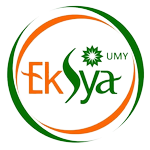Riba (Interest) Between Reason and Revelation in Islam
DOI:
https://doi.org/10.18196/jiebr.v1i2.18Keywords:
Islamic Economics; Reason; Revelation; RibaÌ…Abstract
This paper discussed the opposing views of Reason (human intellect) and Revelation (Islamic thought) on the concept and practice of Ribá¾± (interest). As it is known that ribá¾± is a universal instrument engaged for economic practices, while revelation, particularly Islam, prohibits it. In this study, arguments from both thoughts are placed side by side using primary and secondary sources. In this regard, the study adopted a descriptive qualitative research design for elucidation. It examined and established the relationship between reason and revelation as well as the areas of departure from each other. The study found out that riba-based economic practice has not been favorable to the course of development across the globe, hence the frequent shift from higher to lower interest rates by various countries. Consequently, Islamic alternatives to ribá¾± were presented with a view to safeguarding the faith and socio-economic status of the adherents of Islam. Research-based recommendations were offered for necessary adjustment by stakeholders. Optimistically, the submission of this study will stimulate a positive response from the stakeholders.
References
Abdul, M. O. A. (1971). The Holy Book of Islam, It’s Content and Value (an Introduction to the Study of the Qur’an). Lagos, Islamic Publication Bureau.
Ahmad, A. U. F. and M. K. Hassan (2007). "Riba and Islamic banking." Journal of Islamic Economics, Banking and Finance 3(1): 1-33.
Ahmad, M. T. (2004). Revelation, Rationality, Knowledge and Truth. United Kingdom, Islam International Publication Limited. .
Alaro, A. R. A. (2021). Islamic Financial Services: The Interplay of Religion, Law and Corporate Social Responsibility. Ilorin, University of Ilorin.
Bello, F. O. (2004). Application of Mathematics and Statistics to Finance. Lagos, Micheltos Prints.
Benton, W. S., C. (1974). The Encyclopedia Britannica. P. W. Goetz. Chicago, Encyclopedia Britannica Inc.: 783.
Brasher, B. E. (2001). Encyclopedia of Fundamentalism. New York, Routledge: 417-418.
Chapra, M. U. (2007). "The case against interest: Is it compelling?" Thunderbird International Business Review 49(2): 161-186.
Churchman, C. W. (1968). Challenge to reason, McGraw-Hill New York.
Dewi Warninda, T. (2013). "Dynamic Model of Islamic Bank Profitability." Journal of Islamic Banking & Finance 30(2).
Doi, A. R. (1984). Shari’ah: The Islamic Law. London, Ta Ha Publishers.
El-Tobgui, C. S. (2018). "Ibn Taymiyya on the Incoherence of the Theologians’ Universal Law: Reframing the Debate between Reason and Revelation in Medieval Islam." Journal of Arabic and Islamic Studies 18: 63-85.
Eliade, M., and Adams J. et al (1987). The Encyclopedia of Religion. New York, Macmillan Publishing Company. 2: 223.
Farah, A. (2011). Al-Qᾱmus (The Bilingual Dictionary). Al-Qᾱmus (The Bilingual Dictionary). A. Farah. Lebanon, Dar al-Kutub al’Ilmiyah.
Gusau, S. A. (1995). Readings In Islamic Economics. Sokoto, Usmanu Danfodiyo University.
Jhingan, M. L. (2007). Micro Economic Theory. Delhi, Vrinda Publication Ltd.
Longe, O. A. (2001). Schools Essential Commerce for Senior Secondary. Lagos, Tonal Publishers.
Muhibbu-Din, M. A. (1991). "Revelation and Reason in Islam." LASU Journal of Humanities, The Journal of the Faculty of Arts and Social Sciences 2(1&2): 30.
Muhibbu-Din, M. A. (2008). Islam and Science: Historical Context and Modern Challenges. Lagos, Lagos State University, Ojo, Nigeria.
Mustopa, D. (2018). "Integration of Reason and Revelation in the Perspective of Philosophy of Science." International Journal of Nusantara Islam 6(2): 175-181.
Oke, S. (2003). "“Scope, Definitions and Problems of Philosophy†in A. O. K. Noah (ed), Fundamentals of General Studies." 391.
Onyido, B. C. (1997). "Interest rate policies in ECOWAS countries: a comparative analysis." Bullion 21(4): 4.
Qutb, S. (1999). In the Shade of the Quran. United Kingdom, The Islamic Foundation.
Rahman, A. u. (1986). Encyclopedia of Seerah. Encyclopedia of Seerah. London, Seerah Foundation: 570.
Raimi, L., M. A. Bello and H. Mobolaji (2010). "Faithâ€based model as a policy response to the actualisation of the millennium development goals in Nigeria." Humanomics 26(2): 124-138.
Rutherford, D. (1992). Dictionary of Economics. New York, Routledge Publishers: 479.
Sabuni, M. A. (2007). Prophethood and the Prophets. Beirut, Al-Maktabah Al-Assriyah.
Shahar, W., W. S. S. Shahar, N. M. Puad, N. J. Rafdi, S. W. S. A. Sanusi and W. S. W. Hassin (2017). The Historical Development of Islamic Banking. 4th International Conference on Management and Muamalah. Putrajaya: ICoMM.
Uthaymeen, M. S. (2004). Sharhu Riyadh as-Salihin Min Kalá¾±mi Sayyidi al-Mursalin. Cairo, Dar al-Fajri Liturath.
Downloads
Published
How to Cite
Issue
Section
License
Copyright (c) 2021 Journal of Islamic Economic and Business Research

This work is licensed under a Creative Commons Attribution-NonCommercial 4.0 International License.
Journal of Islamic Economic and Business Research has CC-BY NC or an equivalent license as the optimal license for the publication, distribution, use, and reuse of scholarly work for non-commercial purpose. The non-commercial use of the article will be governed by the Creative Commons Attribution license as currently displayed on Creative Commons Attribution-NonCommercial 4.0 International License
Creative Commons License




